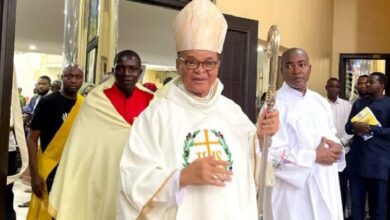Environmental protection
The Minister of Environment, Science, Technology and Innovation, Professor Kwabena Frimpong-Boateng, has pledged Ghana’s commitment to address issues of land degradation and deforestation.
He said initiatives to address the issue included the planting of trees covering 5,500 hectares of land in 118 communities across the country, benefiting 14,000 land users and eight forest reserve management plans covering 42,844 hectares were in place.
He said this at the opening of the fourth Conference of the Sahel and West Africa Programme in support of the Great Green Wall Initiative in Accra, recently.
Other Initiatives, such as the fight against illegal mining, the one village, one dam project in Northern Ghana and the planting for food and jobs, would ensure food security and protect natural resources, Prof. Frimpong-Boateng added.
This, he said, was in line with efforts to achieve the Great Green Wall Initiative underway in some parts of West Africa.
The Great Green Wall Initiative is an umbrella programme supported by the Global Environmental Fund and the World Bank in 12 selected countries in West Africa and the Sahel, using a landscaping approach.
The Project, which focuses on tree planting, is aimed at achieving food security, poverty reduction and efficient water use, reducing climate change risk exposure, soil health and sustainable biodiversity.
Prof. Frimpong-Boateng said land degradation in Ghana and Africa was increasingly being recognised as a key development issue because of the impact it had on the productive capacity of land.
He noted that in Ghana, rural dwellers were the most affected by land degradation because of their heavy dependence on agriculture and other natural resources-dependent activities.
Land degradation, he pointed out, compromised environmental services such as nutrient cycling, regulation of hydrological flows and amelioration of climate extremes and floods.
Prof. Frimpong-Boateng stated that Ghana, with support from its Development Partners, had developed a strategic investment framework to keep the Project going.
In a welcome address, the World Bank Country Director for Ghana, Mr. Henry G. R. Kerali, said economies and people living on Africa’s dry lands, including the Sahel and surrounding countries, depended heavily on soil, water, vegetation and other natural resources.
However, he lamented that in recent years, those resources had been steadily deteriorating as a result of unsustainable management and expansion of human settlements which were generating increasing demand for food, firewood, land and water.
He added that poor land and water management practices had led to accelerated erosion, destruction of water bodies, land degradation and increasing desertification in Ghana, causing the degradation of natural habitats and biodiversity.
“This is resulting in declining natural resource productivity, hence lower household incomes, particularly in the Northern Savannah, the poorest region of the country,” he said.
The Great Green Wall Co-ordinator, Mr. Elvis Paul Tangem, said 14.9 million people had been reached through the Project, as against the targeted 20 million by 2020.
